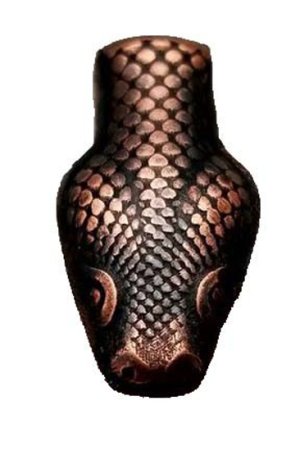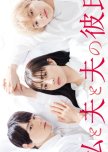This review may contain spoilers
Not a simple cheating story
Take one heterosexual female married to a closet gay man and introduce a bisexual cutie who is romantically interested in both of them and you realise this is not a simple cheating story.
The lovely teacher Nakamichi Misaki has been in an almost sexless marriage for five years and keeps telling herself "it's all right."
We learn, later on, that her husband, Nakamichi Yuki, has been coerced by his family to play the eldest son role and marry despite the confession later by his overbearing father that he already suspected his son is gay.
As a student Ina Shuhei confessed his feelings for his teacher Misaki and then left to study art. He appears again as the lover of Yuki.
Thus begins the exploration of norms in a Japanese society with regard to sexuality and relationships.
Shuhei has a strong belief and philosophy that he is able to love more than one person at a time and his preferences are gender fluid. He desires a relationship with Yuki and Misaki yet hopes he will not harm or hurt them.
Yuki has discovered his passion through Shuhei and has to struggle with his platonic love for his wife and his wish for her happiness.
Misaki is the one who spends the most time questioning her beliefs about herself and adapting her ideas about monogamous relationships. Initially the idea of losing her love interest Yuki causes her to pretend all is well. Later she attempts to incorporate Shuhei into her husbands life only to discover she is marginalised and has also placed an added burden onto her husband.
The tense scene of their 'death' is an interesting way of introducing the topic of suicides in the LGBT community.
Although the themes are complex each actor and scene add to the story being explored. My own experience and beliefs are not too hard set so I felt empathy for each of their stances and liked how the writers did not provide answers but left me with questions.
My only negative was in the (dead fish) kiss scenes with Yuki and Shuhei that were opposite for Shuhei and Misaki's.
The lovely teacher Nakamichi Misaki has been in an almost sexless marriage for five years and keeps telling herself "it's all right."
We learn, later on, that her husband, Nakamichi Yuki, has been coerced by his family to play the eldest son role and marry despite the confession later by his overbearing father that he already suspected his son is gay.
As a student Ina Shuhei confessed his feelings for his teacher Misaki and then left to study art. He appears again as the lover of Yuki.
Thus begins the exploration of norms in a Japanese society with regard to sexuality and relationships.
Shuhei has a strong belief and philosophy that he is able to love more than one person at a time and his preferences are gender fluid. He desires a relationship with Yuki and Misaki yet hopes he will not harm or hurt them.
Yuki has discovered his passion through Shuhei and has to struggle with his platonic love for his wife and his wish for her happiness.
Misaki is the one who spends the most time questioning her beliefs about herself and adapting her ideas about monogamous relationships. Initially the idea of losing her love interest Yuki causes her to pretend all is well. Later she attempts to incorporate Shuhei into her husbands life only to discover she is marginalised and has also placed an added burden onto her husband.
The tense scene of their 'death' is an interesting way of introducing the topic of suicides in the LGBT community.
Although the themes are complex each actor and scene add to the story being explored. My own experience and beliefs are not too hard set so I felt empathy for each of their stances and liked how the writers did not provide answers but left me with questions.
My only negative was in the (dead fish) kiss scenes with Yuki and Shuhei that were opposite for Shuhei and Misaki's.
Was this review helpful to you?


 1
1





















